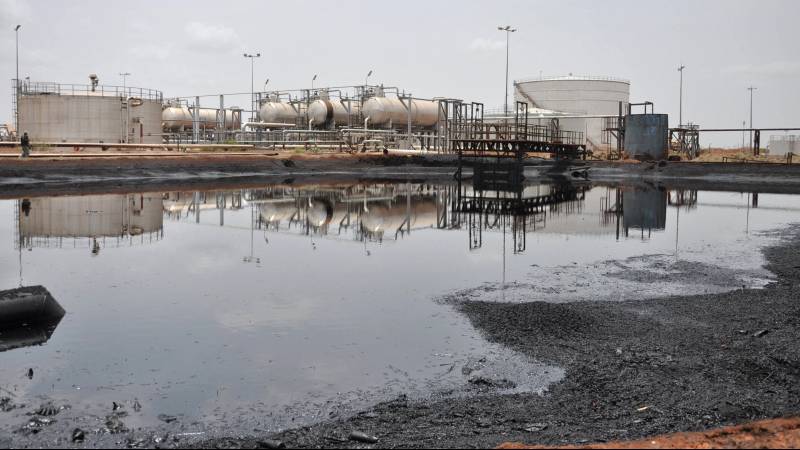
One of Unity oil fields in Unity state - Credit | Joakino Francis/Eye Radio | 12 October 2010
An environmentalist has suggested the relocation of communities living near the oil fields after documenting high prevalence of oil pollution related-diseases among local populations, a move described by the Minister of Petroleum impossible.
In March 2019, Nhial Tiit Mamer and four other members from the Sudd Instituted conducted research at blocks 3 and 7 located in the greater Melut area.
The research covered issues related to exposure to petroleum pollution with focus on resources, water, food, location of farms and pastures as well as settlements around to oil wells.
Among the findings, researcher Nhial Tiit Mamer, said there is a high prevalence of diseases among inhabitants living near the oil fields.
“People are highly dissatisfied with the quality of the environment. All the participants’ namely, local government officials, chiefs, elders, women leaders, youth representatives affirmed their statements that the environment [and] its components of air, water and soil in the area are contaminated by the oil production,” Tiit Mamer said.
“We also found a high prevalence of diseases. Communities anonymously complained of high prevalence of petroleum pollution diseases and reproductive health issues including birth defects, infertility, stymie birth, miscarriage among others.
“There were 13 cases based on the interview we did because we did not do the household survey. The number could have been higher.”
Nhial Tiit Mamer now recommends that the locals be relocated to safer places or else the exploration areas be fenced off to prevent accessibility by humans and livestock.
“Based on what we found there and this should apply to all the oil fields actually, shift assessment and identification of areas within a consideration distance from the oil field where basic facilities or basic services infrastructure can be built of which residents can be relocated away from the oil fields,” Tiit Mamer suggested.
“We think this should be a priority by the way and this is something durable. People should not continue [staying] there because it is not safe for them and it is not good for the industry because down the road they will get frustrated and they will start blocking the companies. So this should be prioritized.”
Reacting to the findings, the South Sudan Petroleum Minister Puot Kang says relocation of the civil population is not possible.
“Relocation of the whole community, it is not very fixable simply because some of the areas where they are today, they are islands, some are low land which there is no operation in,” Minister Kang explained.
“If we look at what we are being told that the flooding may take the next 5 years, then basically you will relocate communities to swap areas where they will not be able to live in.
“I think we need to look at it differently. Fencing, you will only fence off the contaminated soil, the produced water and wells you will be able to fence them off but once flood comes, you will not be able to fence flood.”
In October last year, the Ministry of Environment and Forestry promised to respond to looming environmental pollution concerns in the oilfields worsened by the recent flash floods.
There have been several concerns raised by authorities in the oil producing states of possible ecological contamination as some of the grounds are still already submerged by the devastating floods.
Support Eye Radio, the first independent radio broadcaster of news, information & entertainment in South Sudan.
Make a monthly or a one off contribution.
Copyright 2024. All rights reserved. Eye Radio is a product of Eye Media Limited.